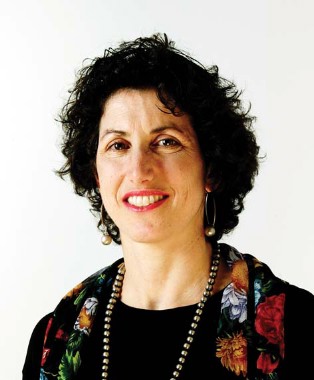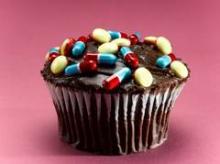U.S. adults who take statins consumed 14.4% more fat and 9.6% more calories in 1999-2000 than a decade earlier, while the prevalence of statin use more than doubled during that time, investigators reported online April 24 in JAMA Internal Medicine.
But fat and calorie intake did not change significantly among statin nonusers during the study period, reported Dr. Takehiro Sugiyama of the University of California, Los Angeles, and the University of Tokyo, and her associates.
The findings raise questions about managing hyperlipidemia in an era of epidemic obesity, diabetes, and "soaring" health care costs, the researchers said.
"We need to consider if it is an acceptable public health strategy to encourage statin use without also taking measures to decrease the likelihood that its use will be associated with increased caloric and fat intake as well as weight gain," they added. "We believe that the goal of statin treatment, as with any pharmacotherapy, should be to allow patients to decrease risks that cannot be decreased without medication, not to empower them to put butter on their steaks."
Dr. Sugiyama and her colleagues performed repeated cross-sectional analyses of NHANES (National Health and Nutrition Examination Survey) data on 27,886 U.S. adults aged 20 years and older during 1999-2010 (JAMA Intern. Med. 2014 [doi:10.1001/jamainternmed.2014.1927]).
At the start of the study period, statin users consumed 179 fewer kcal/day (2,000 vs. 2,179 kcal/day; P =.007) and 9.5 fewer grams of fat/day (71.7 vs. 81.2 g/day; P = .003) than did nonusers, "as we would expect for persons attempting to control their cholesterol level and weight," the researchers said.
But the gaps between the two groups narrowed as statin users consumed more calories and fat during the next several years. By 2009-2010, statin users consumed 9.6% more calories and 14.4% more fat than they had in 1999-2000, both statistically significant differences. In fact, statin users consumed 54 more calories and 2.7 g more/day than did nonusers. Furthermore, their body mass index increased significantly, by 1.3 kg/m2 during 1999-2010, compared with the BMI increase in nonusers of 0.5 kg/m2, the investigators reported.
Statin use "may have undermined the perceived need to follow dietary recommendations," the researchers wrote. Patients, perceiving the drastic effect of statins on LDL cholesterol levels, "may have lost the incentive" to change their diet. Physicians might have contributed to the process by shifting the focus of consultations from diet to adherence to statin therapy, the researchers added.
"Another possible mechanism is that expanded statin use occurred in people who were likely to eat more," the researcher said. "Some patients may have agreed to initiate statin therapy because they did not want to restrict their diet, whereas others who did not want to take medication may have declined the proposed pharmacotherapy in favor of following dietary recommendations."
The National Center for Global Health and Medicine in Japan, the Honjo International Scholarship Foundation in Tokyo, and the National Institutes of Health funded the study. The authors reported no conflicts of interest.




